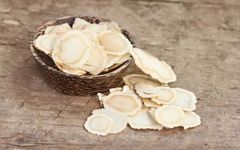
Today, we continue our discussion on ginseng, a great herb for tonifying Qi. We have introduced ginseng many times before, and some friends have asked about the differences among various types of ginseng. Today, I will provide a detailed introduction.
In fact, although they all tonify Qi, the ginseng from Northeast China is considered warm; while the Canadian ginseng (Xi Yang Shen) is cooling and also tonifies Qi.
If a person has a slight deficiency of Yang Qi and does not have Yin deficiency or heat in the body, they can take Northeast ginseng; if they have heat and a slight Yin deficiency, it is suitable to take Canadian ginseng, which is good for those with both Qi and Yin deficiency, known as Qi-Yin dual deficiency.
American ginseng (Hua Qi Shen) is also slightly cooling, but it is more balanced than Canadian ginseng, which is why American ginseng is particularly expensive. It is more versatile in its applications compared to Canadian ginseng.
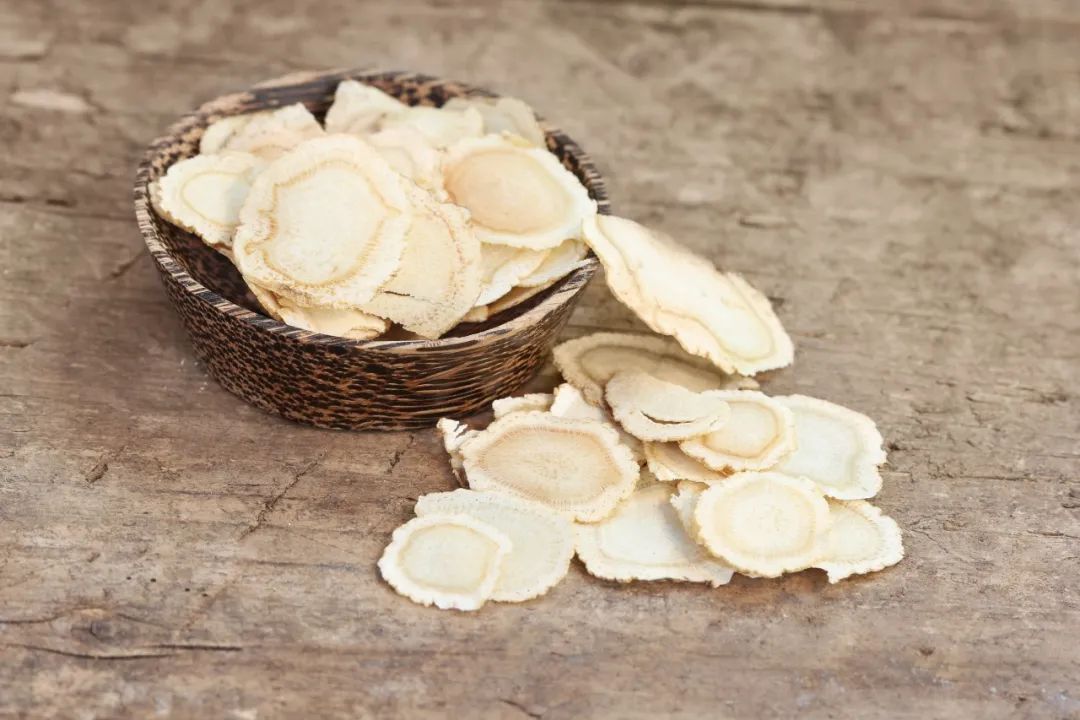
△Canadian ginseng ◎Image authorized by Baotu Network
Since American ginseng is so balanced, can those with Qi deficiency take it? Yes, they can, but Northeast ginseng, with its warm properties, is actually more beneficial for us. Modern people often suffer from Yang Qi deficiency, and many have accumulated Yang deficiency along with Qi deficiency. There are indeed some who have true Yin deficiency with heat, but they are not as numerous. The modern Yin deficiency with heat is often caused by consuming spicy foods and liver fire, but more commonly, it results from daily exposure to cold environments, leading to Yang deficiency. For such individuals, Northeast ginseng is the most suitable. Moreover, Northeast ginseng has a particularly strong ability to strengthen the body’s defenses, making its effects irreplaceable.
How do we choose the type of ginseng?
We can see several types of ginseng. The best is called wild mountain ginseng. This wild mountain ginseng is dug from the mountains, characterized by a small body and long roots, with a shape resembling a goose’s neck. The more “bowls” it has, the older it is. We generally do not recommend this type because it is very expensive, but it is potent. The late Sir Run Run Shaw, who lived to 107 years old, attributed his longevity to daily consumption of wild mountain ginseng slices, which cost around 20,000 Hong Kong dollars each, approximately equivalent to 20,000 RMB. This was the price back then, and it is not the same now. Sir Run Run Shaw was energetic and lived to 107, which is closely related to his long-term use of wild mountain ginseng.
Wild mountain ginseng is now rare; transplanted mountain ginseng is more common. What is transplanted mountain ginseng? It refers to ginseng that is grown in a garden and then moved to a forest to grow, simulating the environment of wild ginseng. This type of ginseng also has characteristics similar to wild mountain ginseng. The ginseng we often see with long roots in a red satin box is mostly transplanted mountain ginseng. True wild mountain ginseng is priceless, while transplanted mountain ginseng is something we can understand.
What kind of ginseng can ordinary people usually consume? It is often raw sun-dried ginseng and red ginseng. Raw sun-dried ginseng is cultivated ginseng that is dried in the sun. This type is particularly strong in its Qi tonifying effects.
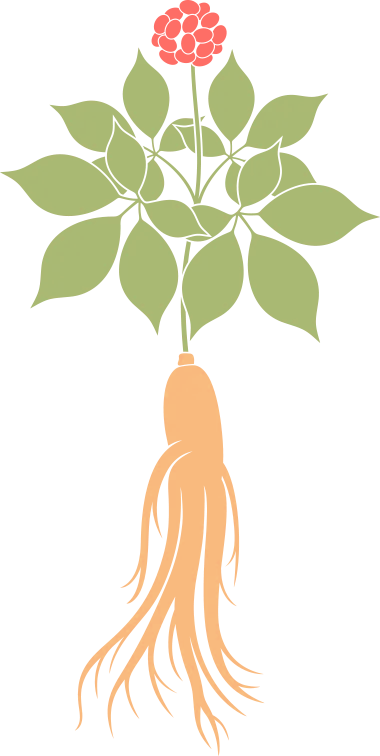
Red ginseng is made by steaming the ginseng for several hours, then drying it, resulting in a darker color and a cross-section that resembles glass, indicating it has been dissolved and then dried.
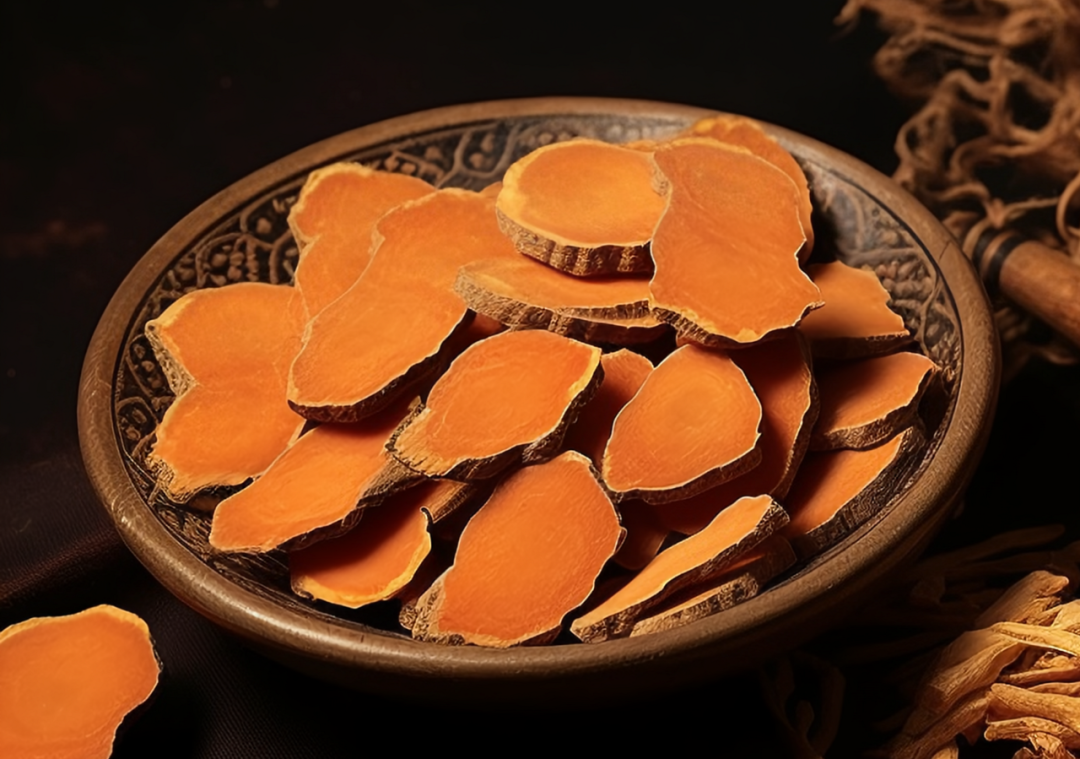
△Red ginseng ◎Image authorized by Baotu Network
Red ginseng tonifies both Qi and blood, primarily tonifying Qi while also nourishing blood. If you want to tonify Qi alone, you can use raw sun-dried ginseng; if there is slight blood deficiency and you want to tonify both Qi and blood, we will add red ginseng. Therefore, when prescribing, it is important to specify the type of ginseng, such as writing “9 grams of ginseng”. The pharmacy may not know which type you want, so it is better to be detailed. If you just write “ginseng,” the medicine dispensed may vary by region. In Northeast China, the pharmacy will generally provide raw sun-dried ginseng.
How should ginseng be consumed?
First, let’s examine why people are hesitant to consume ginseng nowadays. Many believe that ginseng is very warming and can cause heat. A question arises: why did Emperor Qianlong consume ginseng daily from his forties until he was eighty-nine without experiencing heat? There is a reason for this.
First, the ginseng consumed by Emperor Qianlong was used in combination; he rarely took ginseng alone. Historical records indicate that he consumed ginseng with Mai Dong (Ophiopogon japonicus), known as Shen Mai Decoction. If he added a bit of Wu Wei Zi (Schisandra chinensis), it would be Sheng Mai Decoction, a formula by Li Dongyuan. Mai Dong is cooling and nourishing, and when combined with ginseng, the warming nature of ginseng is moderated, allowing for a balanced effect that is neither too cold nor too hot, thus preventing any adverse effects. Therefore, Emperor Qianlong consumed ginseng daily with Mai Dong, often in equal proportions of 3 grams each, and this method worked well.
Thus, I often tell everyone that if you feel you have insufficient heart Qi and are experiencing Qi-Yin dual deficiency, you can take some Sheng Mai Decoction. Tong Ren Tang has a specific Sheng Mai Decoction oral liquid that contains ginseng, Mai Dong, and Wu Wei Zi, as well as a Dang Shen (Codonopsis pilosula) formula. You can take it in summer, and in winter, you can take the ginseng formula. The ginseng formula is also fine. When preparing it yourself, you can soak ginseng with some Mai Dong in water, which will not be too cold or too hot. Finally, you can consume the ginseng, which is also acceptable. Of course, boiling it in water is even better.
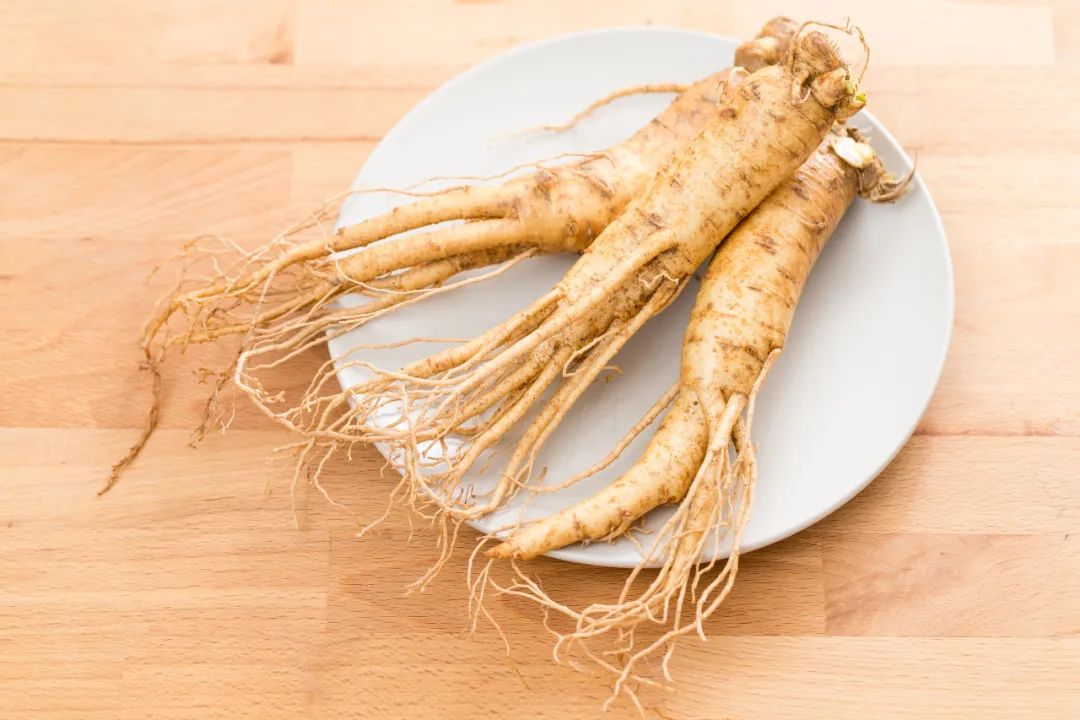
◎Image authorized by Baotu Network
I have always recommended this method of consuming ginseng, which is to combine ginseng with other herbs, the simplest being to pair it with Mai Dong, so that it does not cause heat or generate excess.
Are there any situations where ginseng should not be consumed? Is ginseng suitable for everyone?
In cases of excess heat syndrome, such as when experiencing an external pathogen with yellow phlegm or pneumonia, ginseng should be used in combination with other herbs. In the past, it was often said that ginseng should not be used during heat syndromes, but I believe this statement is inappropriate.
Sometimes, even if there is heat evil, we need to dispel the evil while also supporting the righteous Qi. The secret of traditional Chinese medicine is to combine herbs appropriately, allowing for simultaneous support of the righteous Qi and dispelling of the evil. It is not like the Qing dynasty physician Xu Lingtai and others claimed that taking ginseng would reinforce the evil Qi; it will not, because there are still herbs to clear the evil Qi. It is about using them in combination.
In cases of external pathogens with excess heat syndrome, such as yellow phlegm, severely swollen tonsils, pneumonia, and heavy phlegm sounds in the chest, it is best to consult a doctor before using ginseng; do not self-medicate.
What other situations should ginseng be avoided? For example, in cases of severe Yin deficiency, where the tongue is very red with no coating, and the pulse is rapid, ginseng can indeed cause heat, so it is not suitable to take ginseng, but Canadian ginseng can be used.
This type of tongue is very red with no coating, which is completely different from a tongue that is swollen, pale, and has teeth marks on the sides.
A swollen tongue with teeth marks and a lot of saliva indicates Qi deficiency and insufficient Yang Qi, not a heat tongue. In this case, ginseng can be taken, especially when you are about to engage in particularly physically demanding work.
At Beijing University of Chinese Medicine, there is an elderly gentleman who, while lecturing, would soak a piece of ginseng in a cup and drink the water during the lecture. This is a refined practice because lecturing consumes Qi. Sometimes, if you have been working hard for several days and feel particularly fatigued, using a few slices of ginseng to suck on can be effective; you only need one or two slices a day to feel the effects, and you will feel energized, as if your fatigue has disappeared. This is the effect of ginseng.
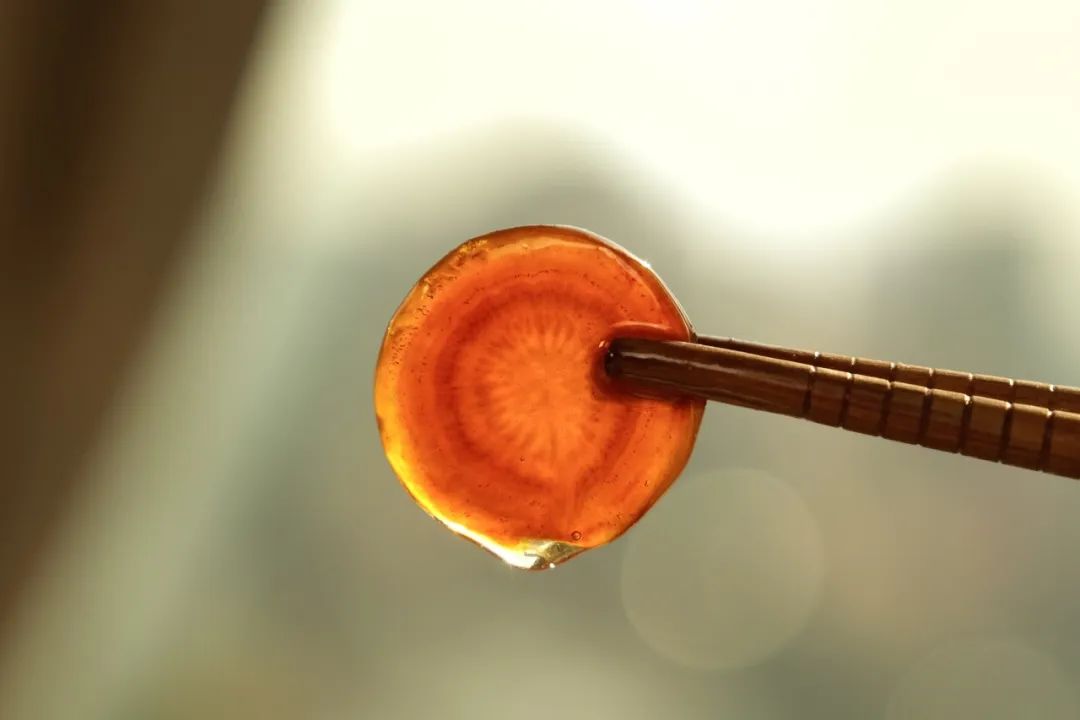
It is important to note that children should never consume ginseng indiscriminately. Ginseng has a strong tonifying effect, and children are easily affected by tonics, often having abundant Yang Qi and internal heat. Therefore, giving ginseng to children can lead to health issues. If a child needs ginseng for growth, it must be prescribed by a doctor, who will use other herbs in combination. In normal food, do not add ginseng to children’s diets, nor should you give them ginseng without reason, as this can harm them. Our country strictly prohibits the addition of ginseng to children’s food and health products, which must be emphasized.
Additionally, when preparing traditional Chinese medicine, do not use iron utensils to decoct ginseng; ginseng should avoid contact with iron. It can be boiled in a clay pot or soaked in a cup, but not in iron utensils. Also, do not eat ginseng with radishes, as radishes can deplete the Qi of ginseng, making it less effective.
This is some knowledge about consuming ginseng. We should understand and master the usage, allowing those with Qi deficiency to self-regulate in their daily lives.
— THE END —
Related Articles Review
☼ What should people with Qi deficiency do in spring?
☼ Are you Qi deficient? Learn about ginseng!
☼ What types of people are suitable for Huang Qi and ginseng?
☼ Introducing ancient remedies for epidemic diseases—Ginseng Bai Du San
For more related articles, please search within the public account.
☼ Article Search Guide
❀Article ◎ Luo Dalun
❀Editor ◎ Zi Ye
❀Cover Image ◎ Authorized by Baotu Network
❀Do not use images in the article without authorization.


Prize-Winning Essay Collection
If you also have a story related to traditional Chinese medicine, you can write it down and submit it to us at any time. Please submit your article in Word document format to our email.
Please ensure that the submitted article is original and include your WeChat nickname, name, phone number, address, and other contact information. After screening, we will obtain authorization from the author to publish it in our channel. Once published, we will send you a signed book by Dr. Luo.
Thank you for your positive feedback. We look forward to you sharing your story with us and more people, allowing more individuals to experience the charm of Chinese culture.

Dr. Luo’s official WeChat account has the following four, please scan the QR code to follow. Any others are imitations, please do not be deceived!
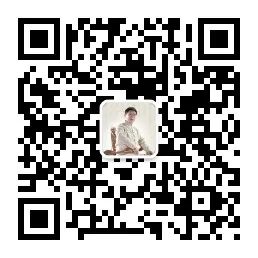
Luo Dalun Channel
WeChat ID: luodalunpd
Dalun Academy
WeChat ID: Dalun_sy
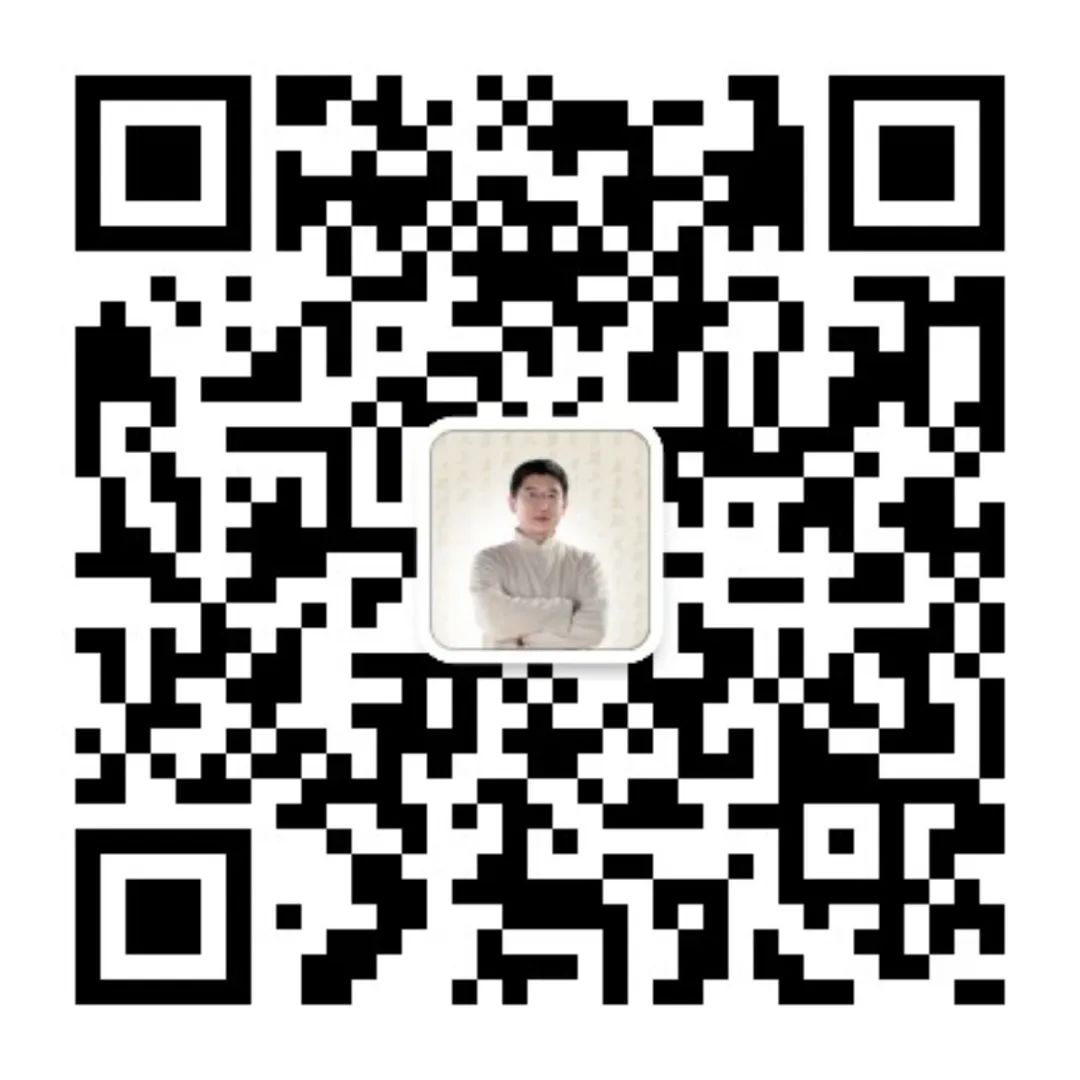
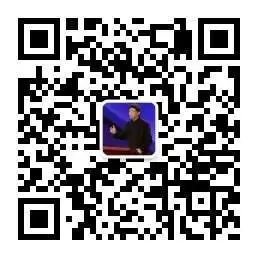
Dalun Parenting Talk
WeChat ID: dalun_yes
Dr. Luo Dalun
WeChat ID: Drluodalun
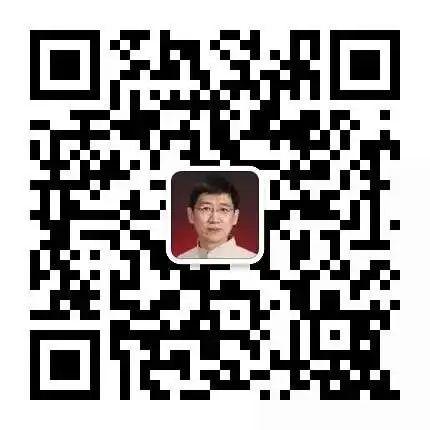
🔹The copyright of original articles in this public account belongs to this account. If you need to reprint, please leave a message to the editor and indicate the source. Commercial use is prohibited.
🔹The articles reprinted in this public account are for learning and communication purposes only and fall within the scope of fair use. If there are errors in the attribution of images, data sources, or text copyright, please inform the editor, and they will be corrected or deleted immediately.
🔹This public account holds the portrait rights of Dr. Luo Dalun. Unauthorized use will result in legal action.
🔹This public account is legally supported by Beijing Zhongzhe (Shenyang) Law Firm. This account will pursue legal responsibility for any unauthorized reprints, commercial use, and refusal to delete posts after warnings.

